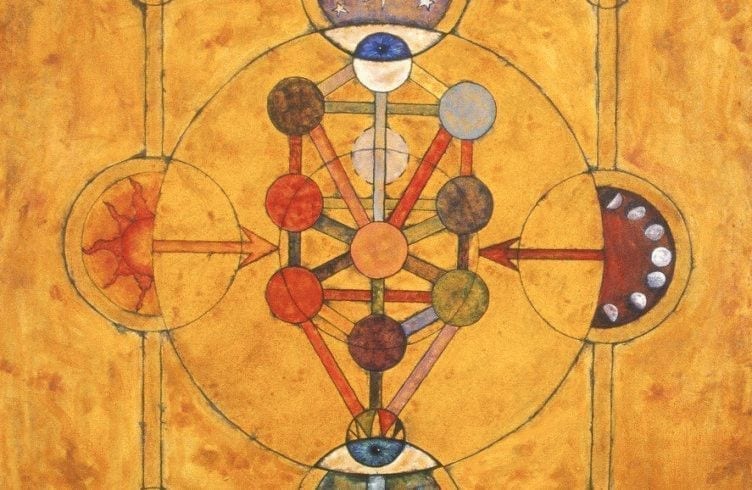Sometimes you’ll hear people say, “That outfit is not her type.” Sometimes you’ll hear, “That yeshivah is not his type.” But have you ever heard anyone say, “She’s not the type to die”? Does that make sense? Can anyone say such a thing? Death is not something that anyone has control over. And yet I say it. I say it about my older sister, Esti. Those who knew Esti will understand exactly what I mean. She really wasn’t the type to die. My sister Esti was warm, caring and thoughtful. She was funny, bubbly and amusing. People gravitated to Esti. When she walked into a room, the whole room lit up. My sister Esti had a determination to live. No matter how sick she was, no matter how dire the prognosis, Esti never gave up. I was with Esti when the cold, emotionless doctor pronounced her death sentence. We walked out of Sloan-Kettering without anything to say to each other. What does a dying older sister say to her younger sister after receiving such a devastating prognosis? What does a younger sister say to her older sister after hearing such horrible words? There is nothing to say. So we said nothing. I went home to my husband and children,but my unmarried older sister returned to her empty, lonely apartment. But Esti wasn’t ready to die. So with a courage that came from deep within, she forged ahead. Aside from telling the family and a few close friends, Esti kept her sickness a secret. She went to work, she continued dating, she continued working with at-risk teenagers and she continued to volunteer for Chai Lifeline.

Esti continued to be warm, caring and thoughtful. She continued to be funny, bubbly and amusing. People continued to gravitate to her, and the room continued to light up when she walked in. She also went to chemo and radiation appointments. Sometimes she had unexpected, very scary surgeries, but she didn’t complain. She never let the cancer define who she was. It was something that was taken care of as quietly as possible. I only knew she was in physical pain when I saw her unobtrusively take her medicine. I only knew she had fear when we had our heartto-heart talks. Esti forged ahead with life. She didn’t dwell on the pain. She was so inspiring. She inspired her family. She inspired her friends. And she inspired one particular young man whom she was dating. He knew how sick Esti was. He heard the doctor utter a grim prognosis, and he said, “I don’t care. She is the one I want to marry.” My sister Esti became a kallah. My father cried as he bentched her before the chasunah. My mother davened that they should have a long, healthy and happy life together. We all danced and danced, intoxicated with so much happiness at that moment. Although it wasn’t new for us to see her in a sheitel, Esti looked beautiful. Esti and Shlomo were so happy together. They were a glowing couple. And then one day, she whispered to me, “I just want one child! I love my nephews; I love my niece! But I just want one baby of my own!” But the next scan revealed that the cancer had spread to her brain. She knew that our mother couldn’t find out about it then. On that Erev Shabbos, shortly before she had emergency brain surgery, Esti called our mother to wish her a good Shabbos. In her very caring way, she made the call from the bathroom, where the hospital noises wouldn’t be heard. She never regained her strength after that.
She couldn’t go back to work, and she knew that she was too sick to have a baby. However, it gave her great pleasure to do whatever she could to make her husband happy. And he was. He came home from work each day to enjoy an evening with his wife. They talked, they laughed and when she was able to, they went out together. By the time their second anniversary rolled around, she was very weak and in a lot of pain. “Please,” her friends pleaded with her, “let us call the hospice.” But Esti refused to become a hospice patient. If she did, then she would have to stop taking the chemo, and Esti was not yet ready to give up. When she was admitted to the hospital for the last time, we all knew that she would probably never return home. Word finally leaked out. Esti, who was everyone’s best friend, was very, very sick. One by one they trickled into the hospital room. Each person was shocked to see how sick she looked. Some said they would be back the next day. Instead of returning to her hospital room, though, they came to her levayah. The number and diversity of the people who filled up the shivah house attested to Esti’s greatness, but that brought me little comfort in my loneliness. I kept looking for Esti. I needed her at a time like this. It kept hitting me again and again. Esti is dead! I kept on thinking, She’s just not the type to die. January 7th was Esti’s yahrtzeit. I can’t believe it’s been over four years since I last saw or spoke to her.
I still miss her very much. At times, I feel overcome with sadness that she died without having a child. When the child of a deceased person performs a mitzvah, the neshamah of the parent automatically has an aliyah, even if the child isn’t thinking of the parent at that moment. It pains me that Esti’s neshamah doesn’t have that opportunity for constant aliyah. However, I take comfort in knowing that Esti accomplished so much in her short life. She helped so many people who were struggling with Yiddishkeit. She supported so many families who were dealing with illness. She was a listening ear to countless friends. She never expressed jealousy that three younger siblings got married before her. She loved our children and helped us out so willingly. There are times when I feel down or impatient with people around me. There are times when I don’t feel like doing all my daily chores. But I think of Esti, and how she just wanted to be able to cook meals and clean her house for her husband. I remember how Esti always forged ahead, always there to help out her friends regardless of her challenges. I will never, ever stop missing her. But I will also never stop feeling inspired by her.





